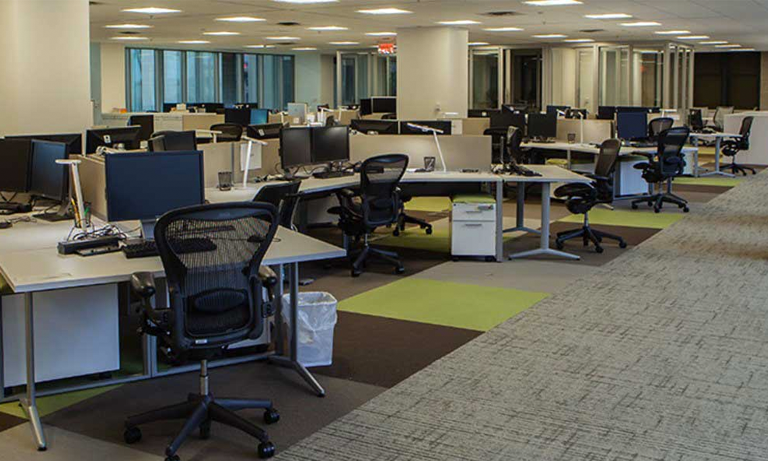
They are said to foster better relationships, as people sit more closely together with their colleagues. However, open plan offices have also been blamed for interruptions and spreading disease. Read on for more considerations about open plan offices.
Open plan offices are thought to help teams to bond and collaborate more easily. This is because physically being located in the same space makes it easier to talk. However, this is not always the case, as people can become easily distracted and productivity can suffer. In fact, although there is lots of talking in an open plan office, it is not always about work-related issues.
Noise and interruptions
Noisy phone calls, chatter and interruptions can mean workers get very little actual work done sitting in an open plan office. It can feel like a social space, rather than a serious work space. This is especially true if people have jobs where they need to concentrate, such as writing, planning or computer programming.
The simple truth is that it is much easier to focus when we can be quiet and concentrate on the task at hand. This is best done in a solo space with a closed door.
Increased Sickness
In addition to lack of productivity, workers in open plan offices are much more likely to get sick. This is because viruses can travel so much more easily within an open plan office. With no walls and doors to stop airborne particles, people will breathe in bad air more easily.
Currently, around 70% of offices in the USA are open plan. However, statistics also show that people are 15% less productive when in an open plan office, they cannot concentrate properly and are twice as likely to come down with an illness.
Studies have shown that our memory can also suffer in an open space. Hot-desking has become popular, where people sit wherever they want or wherever is free and move their work with them. However, research shows we retain more information if we sit in the same place each day and have our own personal working space.
Temperature issues
50% to 60% of open plan office workers are dissatisfied with their sound privacy, compared to just 16% of closed office space workers. People are also dissatisfied with temperature, air quality and light.
Communication in open plan spaces is usually about non-work related things, so any benefit from collaboration is minimal and could also be found in a closed plan office with a visit to speak to someone. You can also book a meeting room to discuss an issue, which also affords better privacy.
Low quality work
We can work in an open space, but our work will take longer and be of lower quality. Some people choose to wear headphones to block out the noise in an open plan office, but this negates the purpose of the office, in terms of it being a collaborative space.
The only people who benefit from open plan spaces are those whose job requires only repetitive tasks that don’t require much concentration, and those who are brand new or at a junior level, as they benefit from watching and learning from others.
Recruiters love this COMPLETE set of Accredited Recruitment & HR Training – View Training Brochure








